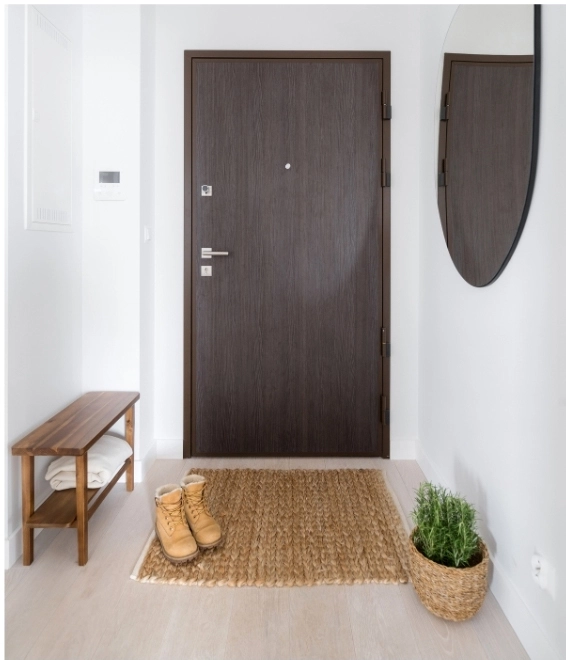
Coir Door Mats Exporting
Coir door mats are eco-friendly, durable mats made from the husk of coconuts. They are popular for their natural look and strong fiber, making them perfect for indoor and outdoor use. Coir fibers are stiff and can effectively trap dirt and moisture, making them ideal for keeping entrances clean.
Here are some benefits of coir door mats:
- Eco-friendly: Made from renewable coconut husk fibers, coir mats are biodegradable.
- Durability: Coir fibers are strong, ensuring long-lasting use, even in high-traffic areas.
- Natural appearance: Coir door mats have a rustic and natural look, adding charm to home entrances.
- Great dirt and moisture absorption: Coir fibers are great at scraping dirt and absorbing moisture from shoes, keeping floors clean.
- Customizable: Coir door mats can be printed with designs, messages, or logos, making them perfect for personalization.
Would you like more information on a specific aspect, such as different styles or customization options for ARCHA International's products?
Learn More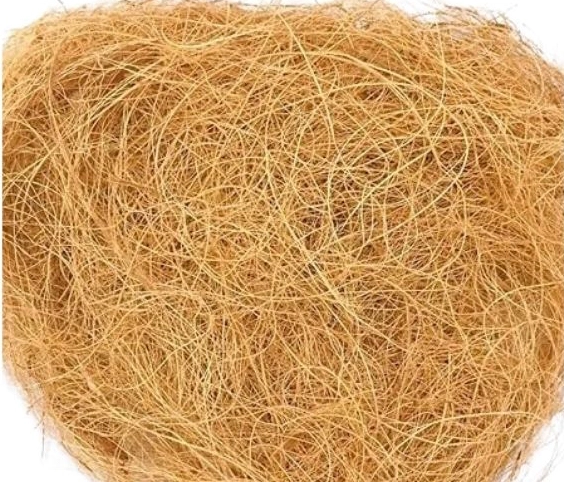
Coir Fibre Exporting
Coir fiber is a natural fiber extracted from the outer husk of coconuts. It is a versatile material known for its durability, strength, and water-resistant properties, making it widely used in various industries.
Types of Coir Fiber:
- Brown Coir: Thick and strong, from mature coconuts. Used for brushes, mats, ropes, and mattresses.
- White Coir: Softer, from immature coconuts. Ideal for yarns, ropes, and fishing nets.
Key Uses:
- Coir Mats & Rugs: Durable floor coverings made by weaving coir yarns.
- Coco Peat: A by-product used in horticulture as a water-retentive soil medium.
- Bristles for Brushes: Stiff coir fibers used in cleaning tools.
- Geotextiles: Erosion control materials for slope and soil stabilization.
Environmental Benefits:
- Sustainable: Coconut-based, renewable, and abundantly harvested.
- Biodegradable: Naturally decomposes, contributing to a greener planet.
Would you like to explore more specific uses for ARCHA International's product line involving coir fiber?
Learn More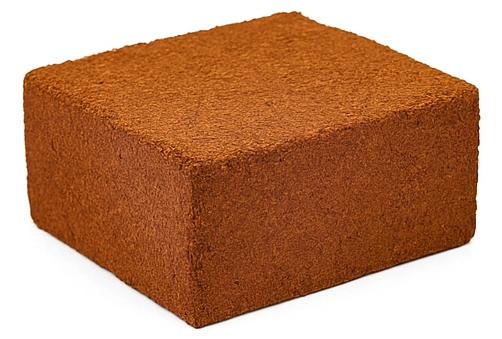
Coir Coco Peat Exporting
Cocopeat, also known as coir pith, is a byproduct of coconut processing. It is made from the husk of coconuts and is widely used as a growing medium in horticulture and agriculture due to its excellent water retention and aeration properties.
Key Features of Coir Cocopeat:
- Water Retention: Holds 8–10× its weight in water, keeping soil moist.
- Aeration: Improves root oxygen flow and prevents soil compaction.
- pH Neutral: Ideal pH range of 5.7–6.5 for most plants.
- Environmentally Friendly: Biodegradable and sustainably sourced.
- Versatility: Suitable for soil amendment, hydroponics, and potting mixes.
- Anti-Fungal Properties: Naturally resists harmful fungi, protecting plants.
Would you like more information on a specific aspect, such as different styles or customization options for ARCHA International's products?
Learn More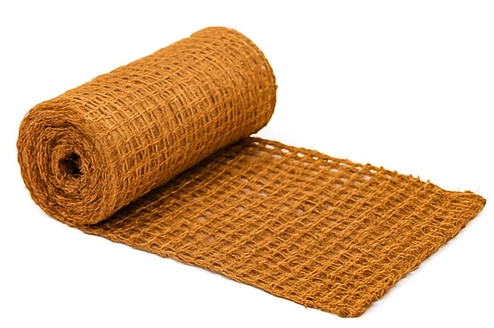
Coir Geotextiles Exporting
Coir geotextiles are biodegradable fabrics made from coconut husk fiber. Widely used in soil conservation, slope stabilization, and eco-restoration, they combine strength with sustainability for civil engineering and landscaping applications.
Key Features of Coir Geotextiles:
- Biodegradable: Breaks down over 3–5 years, enriching the soil while stabilizing it.
- High Tensile Strength: Suitable for steep slopes, embankments, and riverbanks.
- Water Absorption: Retains moisture, aiding plant growth in harsh environments.
- Soil Protection: Prevents erosion caused by wind and rain.
- Durability: Natural longevity provides enough time for vegetation to establish roots.
Applications of Coir Geotextiles:
- Erosion Control: Ideal for hills, slopes, and coastal zones.
- Slope Stabilization: Reinforces hillsides until plants take root.
- Riverbank & Coastal Protection: Stabilizes soil in flood-prone areas.
- Agriculture: Used as mulch to suppress weeds and retain moisture.
- Landscaping & Restoration: Helps regenerate degraded or mined land.
Types of Coir Geotextiles:
- Woven: Durable weaves for stronger erosion control.
- Non-Woven: Matted fibers used for soil reinforcement and mulching.
- Mesh: Open structures promoting both erosion control and vegetation growth.
Environmental Benefits:
- Sustainable & Eco-Friendly: Made from renewable coconut husks.
- Promotes Vegetation: Allows plants to grow through, supporting long-term stability.
Advantages of Coir Geotextiles:
- Long-lasting: Effective protection for 3–5 years.
- Water-Permeable: Retains soil while allowing drainage — ideal for rain-prone zones.
- Supports Reforestation: Encourages natural root growth and green restoration.
Would you like more help on how to market coir geotextiles? Don’t hesitate to get in touch — ARCHA International is always ready to assist.
Learn More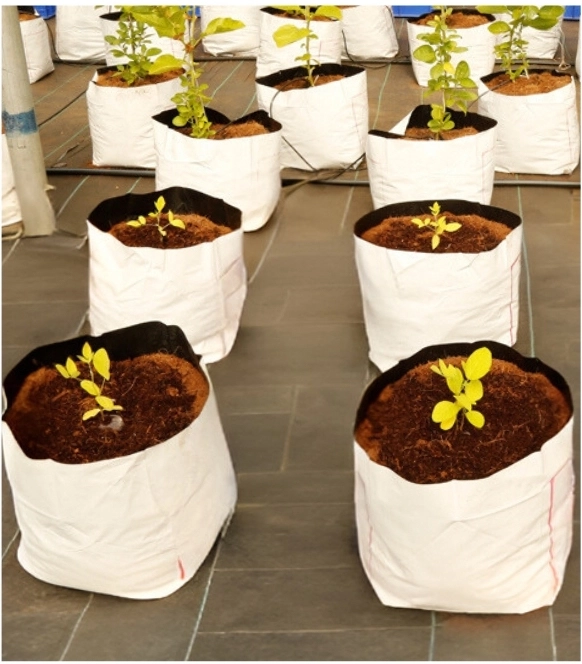
Coir Grow Bags Exporting
Coir grow bags are pre-filled cultivation bags made from compressed coir pith or a mix of coir peat and chips. These are widely used in commercial greenhouses and organic farming for growing vegetables, fruits, and flowers in controlled environments.
Key Features of Coir Grow Bags:
- Ready to Use: Comes pre-filled and requires only rehydration with water.
- Excellent Drainage: Coir structure promotes proper air flow and water drainage.
- Consistent pH: Ideal for most crops, typically ranging from 5.5 to 6.5.
- Custom Sizes: Available in standard and custom dimensions for different crop needs.
- Organic & Biodegradable: Made from natural coconut husk fibers — fully eco-friendly.
Applications of Coir Grow Bags:
- Greenhouse Farming: Used extensively for tomatoes, cucumbers, strawberries, and peppers.
- Hydroponic Systems: Serves as an effective soilless cultivation medium.
- Home Gardening: Perfect for balcony or terrace gardens where space is limited.
Advantages:
- Lightweight & Easy to Transport: Compressed form reduces cost and effort in shipping.
- Reusable: Grow bags can be reused for multiple crop cycles with proper care.
- Weed-Free & Pathogen-Free: Heat-treated for safe growing environments.
Would you like more specific sizing, crop suitability, or private labeling options? ARCHA International is happy to provide customized grow bag solutions for your export needs.
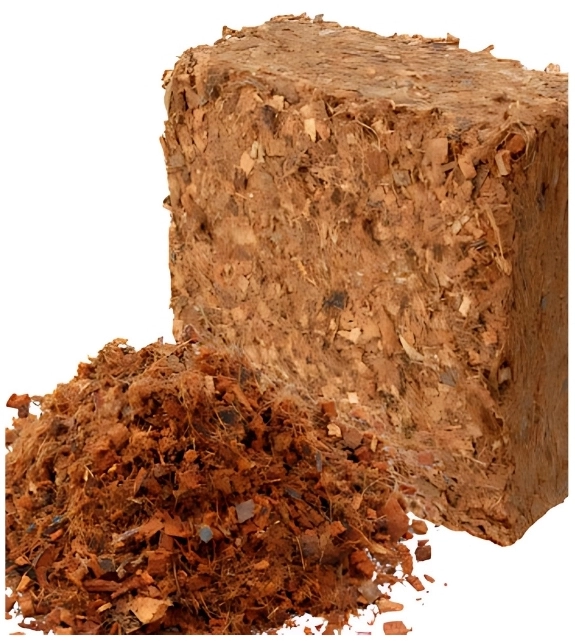
Coconut Husk Bricks Exporting
Coconut husk bricks, also known as coir or coco coir bricks, are made from fibrous material in coconut husks. These compressed blocks expand when water is added, making them ideal for sustainable horticulture and gardening.
Key Features of Coconut Husk Bricks:
- Water Retention: Expands 5–7× when soaked, holds moisture for plant growth.
- Aeration & Drainage: Prevents root rot and improves oxygen flow to roots.
- pH Neutral: Slightly acidic to neutral, easy to amend with nutrients.
- Eco-Friendly: Sustainable alternative to peat moss.
- Nutrient-Rich Base: Can be enriched with fertilizers or compost.
Uses of Coconut Husk Bricks:
- Soil Amendment: Improves aeration and moisture in garden soil.
- Hydroponic Growing: Functions as a soil substitute in soilless systems.
- Potting Mix: Excellent for indoor and container plants.
- Seed Germination: Moisture-retentive and breathable starter medium.
Advantages:
- Sustainability: Renewable, unlike peat moss.
- Biodegradable: Breaks down naturally and can be composted.
- Lightweight: Easy to ship and store in compact form.
How to Use:
- Rehydration: Soak in water for 20–30 minutes to expand.
- Mixing: Use expanded coir as soil mix or standalone medium.
Would you like more specific information on how to market or use coconut husk bricks for ARCHA International?





